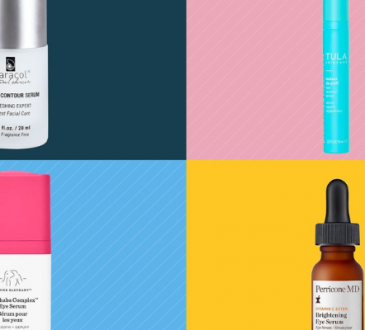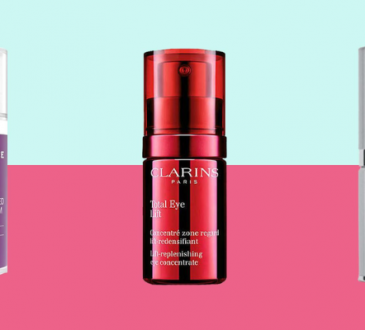Unlocking Radiance: Dermatologist-Approved Serums for All Skin Types
The world of skincare is vast and varied, offering a plethora of products promising flawless skin. Among these, serums stand out as potent elixirs, packed with active ingredients designed to target specific skin concerns. However, navigating the realm of serums can be daunting, especially when considering individual skin types and concerns.
Dermatologists, with their expertise in skin health, are invaluable guides in this journey. Their recommendations can steer us towards serums that not only address our skin’s needs but also deliver tangible results without causing harm. In this comprehensive guide, we delve into dermatologist-approved serums suitable for all skin types, unlocking the secret to radiant, healthy skin.
Understanding Serums:

Before delving into specific serums, it’s essential to understand what makes them unique. Serums are lightweight, fast-absorbing formulations designed to deliver high concentrations of active ingredients deep into the skin. Unlike moisturizers, which primarily hydrate the skin’s outermost layer, serums target specific concerns such as aging, hyperpigmentation, acne, and dehydration.
Choosing the Right Serum:
Selecting the right serum involves identifying your skin type and concerns. Dermatologists recommend a tailored approach, understanding that what works for one person may not necessarily work for another. Here’s a breakdown of dermatologist-approved serums for various skin types:
1. Serums for Dry Skin:
Dry skin requires hydration and nourishment to restore its moisture barrier and prevent further water loss. Dermatologists often recommend serums containing hyaluronic acid, glycerin, and ceramides to replenish moisture and improve skin texture. Additionally, serums infused with antioxidants like vitamin E and niacinamide can help soothe and protect dry, sensitive skin.
2. Serums for Oily/Combination Skin:
Oily and combination skin types benefit from lightweight, non-comedogenic serums that regulate sebum production without clogging pores. Dermatologists suggest serums containing salicylic acid, niacinamide, and retinol to control oiliness, minimize pores, and prevent breakouts. These ingredients work synergistically to balance the skin’s oil production while addressing concerns like acne and post-inflammatory hyperpigmentation.

3. Serums for Sensitive Skin:
Sensitive skin requires gentle yet effective serums that soothe irritation and strengthen the skin barrier. Dermatologists recommend serums formulated with calming ingredients like chamomile, green tea extract, and peptides to reduce redness and inflammation. Fragrance-free and hypoallergenic formulations are preferred to minimize the risk of allergic reactions in sensitive skin types.
4. Serums for Aging Skin:
Aging skin benefits from serums packed with anti-aging ingredients that stimulate collagen production and improve skin elasticity. Dermatologists advocate for serums containing retinoids, vitamin C, and peptides to target fine lines, wrinkles, and age spots. These potent ingredients not only combat visible signs of aging but also enhance skin firmness and luminosity for a youthful complexion.
5. Serums for Hyperpigmentation:
Hyperpigmentation, characterized by dark spots and uneven skin tone, necessitates serums with brightening agents that inhibit melanin production and promote skin renewal. Dermatologists recommend serums infused with ingredients like vitamin C, alpha hydroxy acids (AHAs), and kojic acid to fade pigmentation and reveal a more even complexion. Consistent use of these serums, coupled with sun protection, can significantly diminish the appearance of dark spots over time.
6. Serums for Acne-Prone Skin:
Acne-prone skin requires targeted serums that address inflammation, unclog pores, and regulate sebum production without exacerbating breakouts. Dermatologists often recommend serums containing ingredients like benzoyl peroxide, salicylic acid, and niacinamide to effectively combat acne while promoting skin healing and renewal. These serums work by targeting the root causes of acne, such as excess oil production and bacterial overgrowth, resulting in clearer, healthier skin over time.
7. Serums for Dehydrated Skin:
Dehydrated skin lacks moisture, leading to dullness, tightness, and increased sensitivity. Dermatologists advise incorporating hydrating serums rich in humectants like hyaluronic acid, glycerin, and panthenol to replenish the skin’s moisture reservoirs and restore its natural balance. These serums attract water molecules to the skin’s surface, providing immediate relief from dryness and imparting a plump, dewy complexion. For optimal hydration, layering a hydrating serum under a moisturizer can seal in moisture and enhance its efficacy, leaving the skin soft, supple, and revitalized.
8. Serums for Dull, Lackluster Skin:
Dull, lackluster skin often results from environmental stressors, poor lifestyle habits, and a buildup of dead skin cells. Dermatologists recommend serums infused with exfoliating ingredients like alpha hydroxy acids (AHAs), beta hydroxy acids (BHAs), and enzymes to slough off dead skin cells, promote cell turnover, and reveal a brighter, more radiant complexion. Additionally, serums containing vitamin C, niacinamide, and licorice extract can help combat oxidative stress and environmental damage, restoring luminosity and vitality to the skin. Incorporating these brightening serums into your skincare routine can revitalize dull skin and unveil a healthy, luminous glow.
9. Serums for Uneven Texture and Rough Skin:

Uneven texture and rough skin texture often result from a buildup of dead skin cells, inadequate exfoliation, and impaired skin renewal. Dermatologists recommend serums containing smoothing ingredients like retinoids, alpha hydroxy acids (AHAs), and peptides to refine skin texture, promote collagen synthesis, and enhance cellular turnover. These serums work by accelerating the shedding of dead skin cells, stimulating collagen production, and improving skin elasticity, resulting in smoother, more youthful-looking skin. With consistent use, these smoothing serums can transform rough, uneven skin into a soft, velvety canvas that radiates health and vitality.
Conclusion:
In the quest for healthy, radiant skin, serums play a pivotal role in addressing a myriad of concerns. Dermatologist-approved serums, tailored to individual skin types and concerns, offer targeted solutions backed by scientific research and clinical expertise. Whether you’re battling dryness, acne, sensitivity, aging, or hyperpigmentation, there’s a serum formulated to meet your specific needs.
By incorporating these serums into your skincare routine and adhering to dermatological recommendations, you can unlock the secret to glowing, youthful skin. Remember, consistency is key, and patience is paramount as you embark on your journey towards skin health and vitality. Trust in the expertise of dermatologists and the power of carefully curated serums to reveal the best version of your skin, one drop at a time.



